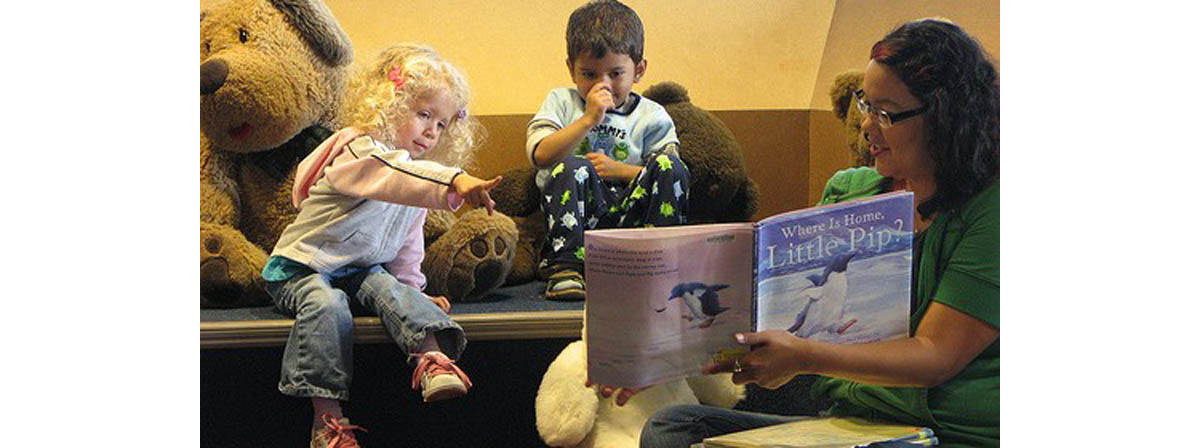Table of Contents
Is Your Kid Developing Normally?
From birth to age one, babies spend their time listening to the verbal communication in their environment and start understanding some of the every-day talk their parents and others engage them in. They also start practicing "babbling" — using strings of consonants and vowels like "dadadadada" and "oyoyoyoy".

From that time to age two, young toddlers learn to use more words every month and will usually start forming multiple-word sentences like "want milk" and "here daddy".
Parents of normally developing children can do plenty to boost their child's language development in that critical window between the ages of two and four, but also before that. Make the most out of that early-childhood brain plasticity!
Actively communicating with your child is the simplest possible way in which you can increase his vocabulary. Are you doing stuff around the house, or going on a trip to the shop? Provide a running commentary of what you are doing, and encourage your child to participate by asking many questions as well.
Read-alouds are another fantastic way to bond with your child while also boosting his brain power. Kids tend to understand many more words than they actively use, and they acquire new words by understanding their meaning from context all the time. Classics such as Charlotte's Web, Peter Pan and The Wonderful Wizard Of Oz are not too complicated for most little ones between two and four to understand.
Are you multilingual? The critical language-development window is the ideal time to introduce your child to your other language(s). Don't worry that multilingualism will damage your child in any way. Research shows that speaking several languages does not harm a child's vocabulary development, though it is quite natural for multilingual children to mix their languages for a while.
Language Delays: How To Spot Them, And Where To Seek Help
Language delays can exist as a stand-alone problem, or they can be a direct result of developmental disorders such as autism. In the latter case, you'll have a whole bunch of tell-tale signs to work with. What I want to address here is just language delays — or in other words, when to seek help of certain skills have not been acquired.
Seek help for a 12-month old child if they have not started "babbling" as described above, if she doesn't communicate physically (waving, shaking head for "no", and so on), doesn't let you know when she needs something, or doesn't respond to her name.
A 15-month old child might need some help if he doesn't understand simple words like "no" and "over there", or does not use any words at all.
Not pointing at things — to show or request something — is another warning sign.
By the time a child reaches 18 months, she should be saying at least 20 words. She should also be using some physical forms of communication like shrugging shoulders and pointing at things, and understanding simple commands like "don't touch", or "wave goodbye to grandma".
A two-year old child should be evaluated if he uses fewer than 100 words, doesn't combine several words into short sentences, doesn't imitate the actions or words he hears in his environment, and does not engage in imaginative play with toys.
Make an appointment for your 30-month old child if she doesn't around 300 words, use action verbs in speech, or applies some basic grammar — like verbs agreeing with nouns, "kitty is playing" instead of "kitty are playing" or "kitty play".
Three-year old toddlers should be asking questions, use sentences, and tell simple stories to others.
Your pediatrician is always a good first point of contact, and she'll be asking questions about your child's language development at well-baby or well-child visits even if you don't indicate that you are concerned.
You don't need to go through your pediatrician to get help, however — what you really need is a speech-language pathologist, and in most places you don't require a doctor's referral to make an appointment. If you are in the United States, contacting your local Early Intervention Program (EIP) is also an excellent bet.
Have you applied to get help, only to be confronted by a long wait list? Don't despair, and contact the Hanen Center for parent programs (often on DVD) that can help you help your child.
- Photo courtesy of USAG-Humphreys by Flickr : www.flickr.com/photos/usaghumphreys/3088370540/
- Photo courtesy of San José Library by Flickr : www.flickr.com/photos/sanjoselibrary/5182900550/


Your thoughts on this